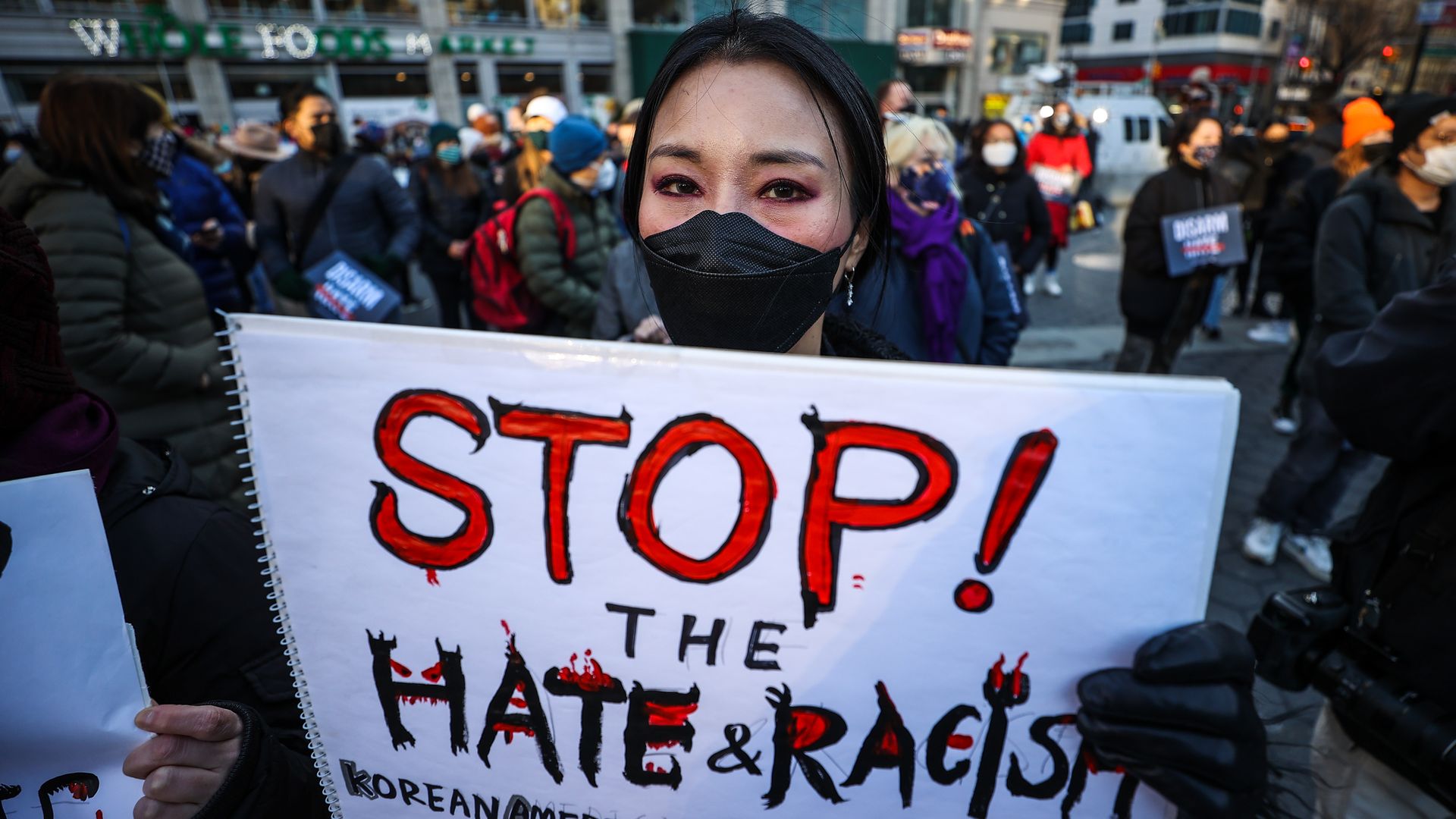Why attacks against the AAPI community are difficult to prosecute as hate crimes
Add Axios as your preferred source to
see more of our stories on Google.

Photo: Tayfun Coskun/Anadolu Agency via Getty Images
Six of the eight victims that an Atlanta area assailant gunned down this Tuesday night were Asian women, but whether those shootings will be prosecuted as hate crimes remains unknown as investigations continue.
Why it matters: "As the debate over what legally qualifies as anti-Asian bias unfolds, the community is grappling with the reality that the law is simply not designed to account for many of the ways in which Asian-Americans experience racism," the New York Times writes.
Driving the news: Robert Aaron Long, a 21-year-old white man, was charged with murder this week after confessing that he killed eight people in shootings at three spas in the Atlanta area.
- Local law enforcement says it is still too early to call the shootings a hate crime. Long told investigators that he had a sex addiction and he saw the spas as a "temptation he wanted to eliminate."
The big picture: The FBI describes federal hate crimes as a "criminal offense against a person or property motivated in whole or in part by an offender’s bias against a race, religion, disability, sexual orientation, ethnicity, gender, or gender identity."
- Attacks on against Asians and Asian Americans have been on the rise, according to the Center for the Study of Hate and Extremism, noting anti-Asian hate crimes rose 149% last year. Stop AAPI Hate received nearly 3,800 self-reported incidents from March 19 last year to Feb. 2.
- But, but, but: "Many incidents have either not led to arrests or have not been charged as hate crimes, making it difficult to capture with reliable data the extent to which Asian-Americans are being targeted," the Times writes.
- Experts told the Times it is difficult to prosecute attacks against the Asian American and Pacific Islander (AAPI) community because there's no universal anti-Asian symbol that clearly demonstrates a racist motive — such as a noose or a swastika.
- "Proving a hate crime isn’t just about the identity of the victims but also the suspect’s motives and state of mind — specifically, whether an accused assailant targeted people because of their race and gender or other characteristics covered by state and federal hate-crime statutes," the Wall Street Journal writes.
What they're saying: David Barkley, senior Southeast counsel for the Anti-Defamation League, told AJC that Georgia's hate crime law adopted by state lawmakers last year protects categories including race, gender, religion and national origin.
- Since Long said his “sex addiction” provoked the attacks, and if it’s proven that he specifically targeted women, that would constitute a hate crime under the gender provision, according to Barkley.
Go deeper: Atlanta shooting tests Georgia's new hate crime law
